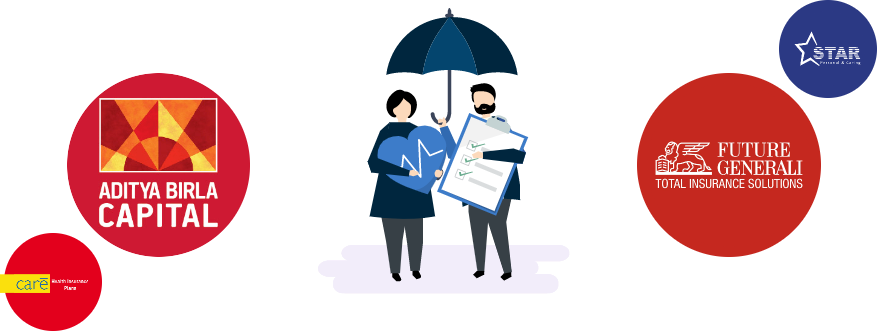Benefits of Choosing Pristyn Care Treatment with Insurance



ICL surgery is covered under health insurance under specific circumstances. For detailed information regarding your eligibility for health insurance coverage for ICL surgery, contact Pristyn Care today.
ICL surgery is covered under health insurance under specific circumstances. For detailed information regarding your eligibility for health insurance coverage for ICL surgery, ... Read More




Free Consultation

Free Cab Facility

No-Cost EMI

Support in Insurance Claim

1-day Hospitalization

USFDA-Approved Procedure
Benefits of Choosing Pristyn Care Treatment with Insurance



ICL surgery is generally not covered under health insurance or Mediclaim policies, as it is considered an elective and cosmetic procedure. However, according to a 2019 notification by the IRDAI (Insurance Regulatory and Development Authority of India), all basic health insurance plans will cover the cost of ICL surgery if a patient’s refractive error is equal to or greater than 7.5 diopters. Additional instances where health insurance and the Mediclaim policy will cover the expense of ICL surgery include:
If an individual seeking ICL surgery does not meet the aforementioned conditions, they will need to bear the entire cost of the surgery on their own. Therefore, we advise you to thoroughly read the terms and conditions of your insurance policy before undergoing ICL surgery so you can plan your expenses accordingly.
• Disease name
Myopia / Hyperopia
• Surgery name
ICL surgery
• Duration
20 to 30 minutes
• Treated by
Ophthalmologist










The costs covered under health insurance for ICL surgery can vary depending on the specific terms and conditions of your insurance or Mediclaim policy. The costs that are generally covered include:
It is important to carefully review your specific insurance policy for any exclusions or limitations related to ICL surgery so you are aware of any out-of-pocket expenses you may incur.

While a Mediclaim policy offers basic hospitalization coverage for specific medical conditions, a health insurance plan is comprehensive. It provides comprehensive protection for hospitalization, pre- and post-hospitalization expenses, ambulance costs, and more. This broader scope goes beyond just covering major illnesses and caters to a wider range of healthcare needs.
Flexibility is another key difference between the two. Unlike Mediclaim’s fixed coverage, health insurance plans allow you to adjust coverage levels to suit your budget and evolving needs. This empowers the patient to personalize their protection.
Accessibility also varies between the two. Claims under a Mediclaim policy typically require hospitalization and thus limit its use for conditions like minor surgeries or outpatient treatments. Health insurance plans, however, offer greater flexibility in this regard. For example, a patient can claim insurance for the treatment of numerous medical conditions even if they do not necessitate hospitalization.
Diet & Lifestyle Consultation
Post-Surgery Free Follow-Up
Free Cab Facility

24*7 Patient Support
The health insurance claim process can be classified into two types. These include cashless claims and reimbursement claims. The process for each method differs and is described below:
This type of claim does not require payment upfront, as the insurance company takes care of it for you. However, in order to avail of the benefits of a cashless claim, you have to avail of treatment at a network hospital, a hospital that is on the list of empaneled hospitals of the insurance company.
Cashless claims can be filed for planned and emergency medical treatments. For a scheduled surgery, you need to visit the hospital two days before the hospitalization and complete the required formalities. For an unplanned hospitalization, you need to visit the cashless counter within 24 hours of admission and complete the required formalities.
Once a cashless claim has been filed, your insurance company will send an authorization letter to the hospital after verifying your eligibility for the submitted claim.
With a reimbursement claim, the payment for the surgery has to be made upfront before the claim is filed with the insurance company. This is applicable when the patient has received treatment at an out-of-network hospital. The claim process involves submitting the required documents along with the claim form to the insurance provider within 30 days of your discharge. The required documents include the claim form, medical certificate, diagnosis reports, ID proof, discharge summary, and all relevant prescriptions and bills.
If the reimbursement claim is not filed within the given deadline, the insurance provider can reject the claim, citing technical grounds.
Patients can consider purchasing specific health plans that can partially cover the cost of elective procedures such as ICL surgery. These health plans can be beneficial in the long run as they can also cover the costs of regular eye exams and other diagnostic tests. These are known as Health Saving Plans. They differ from traditional insurance plans in that they offer health insurance coverage as well as savings to cover the costs of future medical expenses.
The table below highlights the main differences between a health savings plan and traditional health insurance:
|
Health Insurance Plan |
Health Savings Plan |
|
|
Benefits |
The entire amount is used for insurance coverage. |
30–40% of the amount is put in a savings account; the remaining is used for insurance. |
|
Coverage |
Full coverage |
Partial coverage |
|
Insurance premiums |
Comparatively high |
Comparatively low |
Get in Touch
Tell us about your problems and we'll figure out the best treatment option for you.
Pristyn Care services are accessible Pan India
